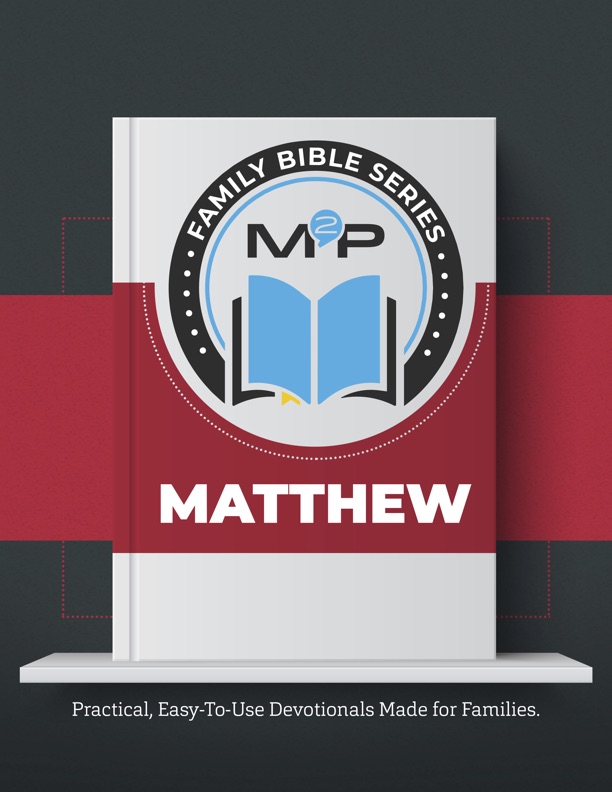To Listen To Our Podcast On This Topic, Click HERE.
Today’s post wraps up M2P’s very insightful and practical series on Communication. For more, click PARENTS, LEADERSHIP STAFF, or VOLUNTEERS.
3 Mistakes Leaders Make in Communicating with Students
As leaders, we must communicate to students if we want to be effective. To be clear, I’m not talking about sitting in small groups opening up the Bible—although that’s important. I’m talking about communicating effectively (and consistently) to reach students and connect them to the ministry, church, and Jesus.
There are countless ways you can engage in effective communication. However, I want to focus on at least three mistakes leaders often make when communicating with students.
Mistake 1: They Just Don’t
It may seem like a silly start, but the first mistake that leaders make is failing to communicate with students at all. Whether they feel nervous, scared, or unsure, leaders make the mistake of simply not communicating.
Let me clarify! I am not talking about a failure to update the website in a timely manner or forgetting to share large group announcements. I am referencing leaders who do not intentionally reach out to students to connect, check-in, and follow-up throughout the week. Students that have leaders, either staff or volunteer, that DO reach out and communicate regularly will have deeper relationships. That student will feel more invested in the ministry/church.
In my ministry, leaders communicate weekly via email or group text to keep the group connected, share info, and gather prayer requests. If a student knows there is always an open communication line to a leader who cares, they will use it more than you know!
Mistake 2: One on One
In the year 2020, one-on-one, private communication via email, text, or DM’s (direct messages) is not a safe or recommended way to communicate with a student. As ministry leaders, we need to protect ourselves and our students from a potential ‘foul-play’ or ‘false assumption’ of our leader’s motives or actions.
As a ministry leader, I do not allow my leaders and staff to direct text, message, or email a single student. We share this information with our students and families, so they know the expectation and protocols.
Does this make connecting to a student difficult? Yes. I
s it the safest way for students (18 and under) to communicate to adults? Yes.
As I have already stated, leaders NEED to communicate with students. They also need to do it in a way that protects them from a false accusation and protects the student from uncomfortable or inappropriate situations.
So, how do you communicate this way? In our ministry, leaders and staff are required to text, email, or message with at least two other people (student or adult leader) any time they connect to a student. This often requires the leader to reply to a student in a different text thread than they sent by including a spouse, another staff member, another leader, or another student. I have found this to be the best practice to communicate to students properly. Sadly, this is often a mistake many leaders make in communicating.
Mistake 3: Picking Favorites
If you have been in ministry any amount of time, you know some kids are more dynamic, easier to talk to, and just seem to ‘get it.’ Other students may be a little more awkward, prone to talking off-topic or seek attention by being a distraction. It’s easy for us to only communicate with the former of these examples.
As leaders, we must strive to include everyone in our communication and outreach. This may mean you call on that one kid in a small group that you know will distract. However, the result is that they will feel included and seen by you.
Other times, you might create a whole group text of the small group instead of just the ‘leaders’ when communicating weekly. This will help everyone feel like they belong, even if they don’t speak up.
This mistake is very easy to fall into, but if you focus on all students— including the fringe ones—you will cultivate deeper relationships and discipleship in your ministries.
Bonus Mistake: Forgetting the Parents
I planned to share three mistakes in communicating with students, but I decided to include a bonus one: communicating with parents. Parent communication can be a struggle, but God clearly outlines the role of parents in discipleship. You must go through moms and dads as the gatekeepers to their children. Reach out to parents first and communicate with them.
Each year, I ask volunteer leaders to reach out to parents with an introduction and ask permission to communicate with the student in a group setting. This honors parents and sets leaders up for a great working relationship as partners in discipleship.
Communication is hard. No one will do it perfectly or share the right amount. However, if you take the time to review common mistakes, you can learn to communicate more consistently and effectively. Ultimately, we all want to help students and families walk deeper with Christ and our ministries! Good communication with students is key to fulfilling this call.
Tony Bianco has been in Student Ministry for over ten years with his wife Diamend with whom they have two amazing kids. He is a former Radio DJ, Technology Reviewer, GameStop Manager, Apple Store Expert, and the author of The Family Technology Plan. You can contact Tony at www.familytechnologyplan.com.
Here’s more on Communication to help you build a parent ministry plan.
5 Communication Mistakes Leaders Make with Volunteers
4 Mistakes Leaders Make in Communication with Parents
Mistakes Leaders Make In Communication with Leadership Staff
M2P’S FEATURED STORE PRODUCT
I am afraid because I don’t know the answers to my kid’s questions. I think my kids will find this boring, annoying, or stupid. If we start, I don’t think we will finish. Spiritual conversations can be awkward.
These quotes are a few examples of the fears parents express regarding the struggle to talk about spiritual matters with their kids. To put parents at ease, we designed the M2P Family Bible Series to inspire and encourage spiritual conversations on-the-go or at home.
This product includes:
- BIG QUESTIONS. SIMPLE ANSWERS. (E-Book)
- MATTHEW (Book Summary, Reading Plan, and Family Journals)


